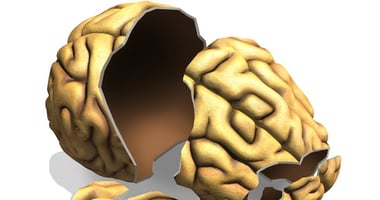A study published this week in JAMA Neurology suggests that traumatic brain injury (TBI) may be...
Citicoline Appears to Offer No Improvement in TBI Patients
 |
Patients received a 90-day regimen of daily enteral or oral citicoline (2,000 mg) or placebo, and both functional and cognitive status were assessed after 90 days using the TBI-Clinical Trials Network Core Battery. No improvement in functional or cognitive status was seen. Although there are no approved treatments for TBI in the U.S., citicoline is approved for use in TBI in patients in 59 other countries.
A recent study of the use of hyperbaric oxygen for TBI presented equivocal results. Read more in Psychiatric News here. See more on this topic in the Textbook of Traumatic Brain Injury, Second Edition, available from American Psychiatric Publishing here.
(Image: Lightspring/Shutterstock.com)





